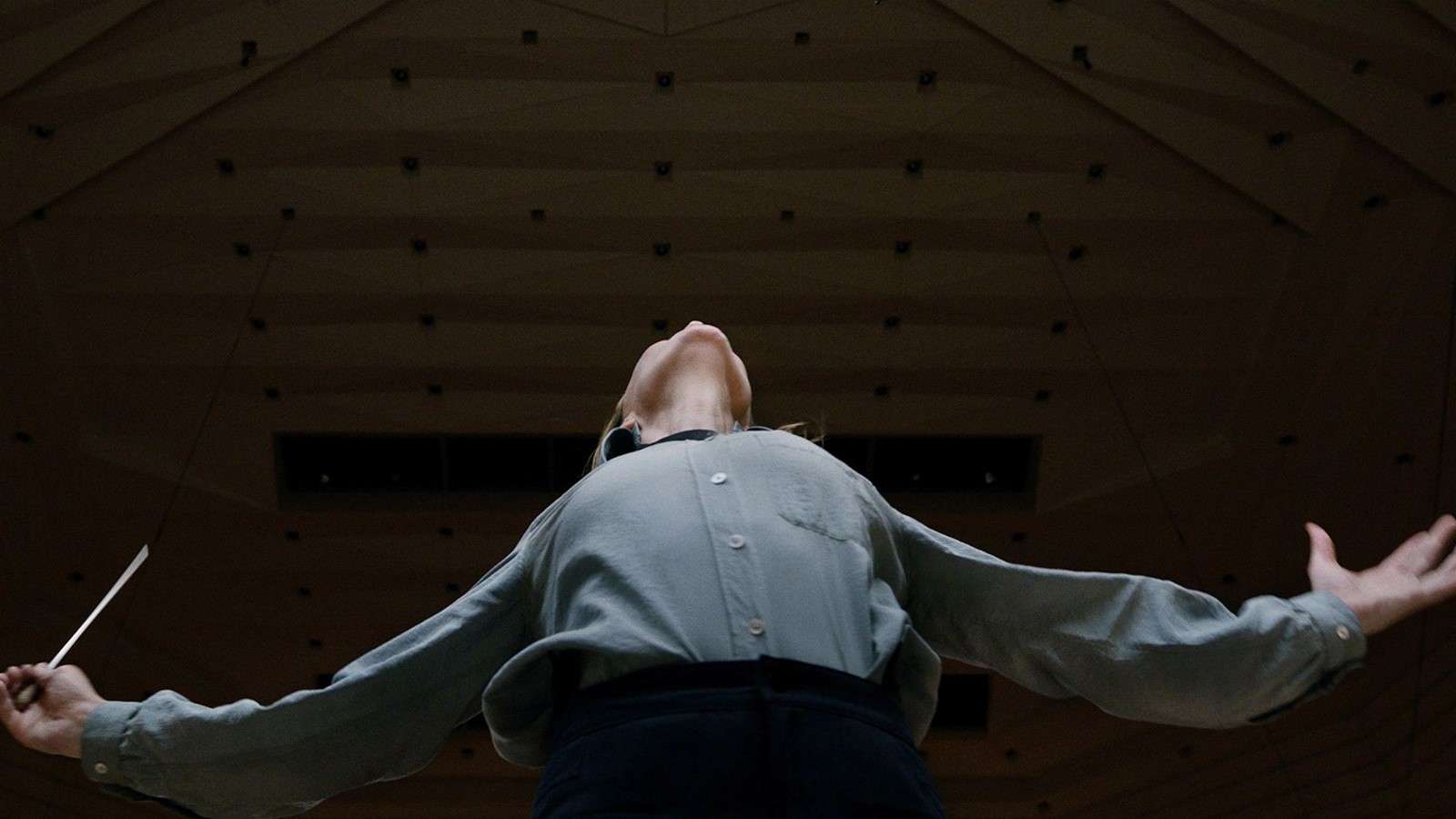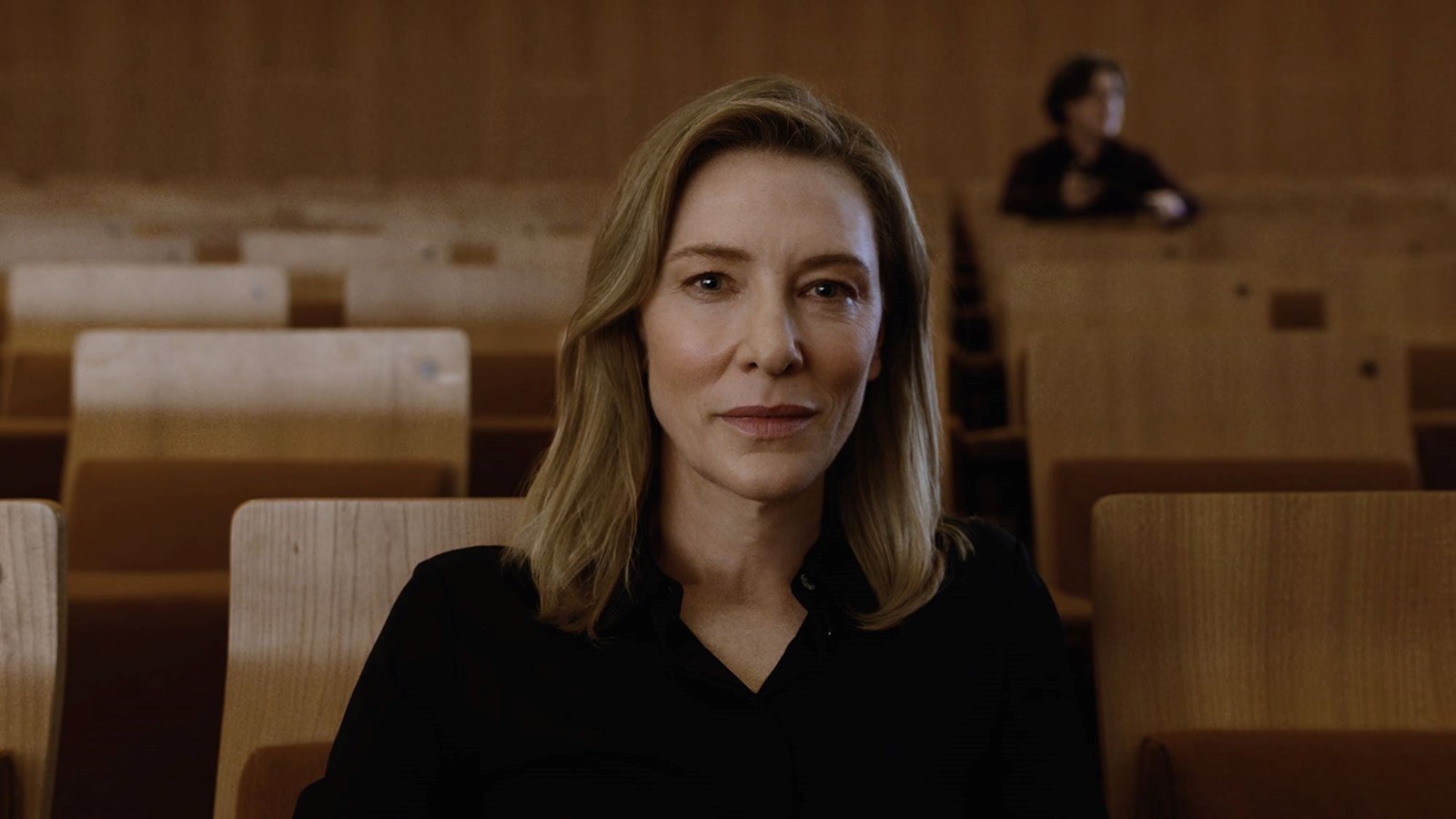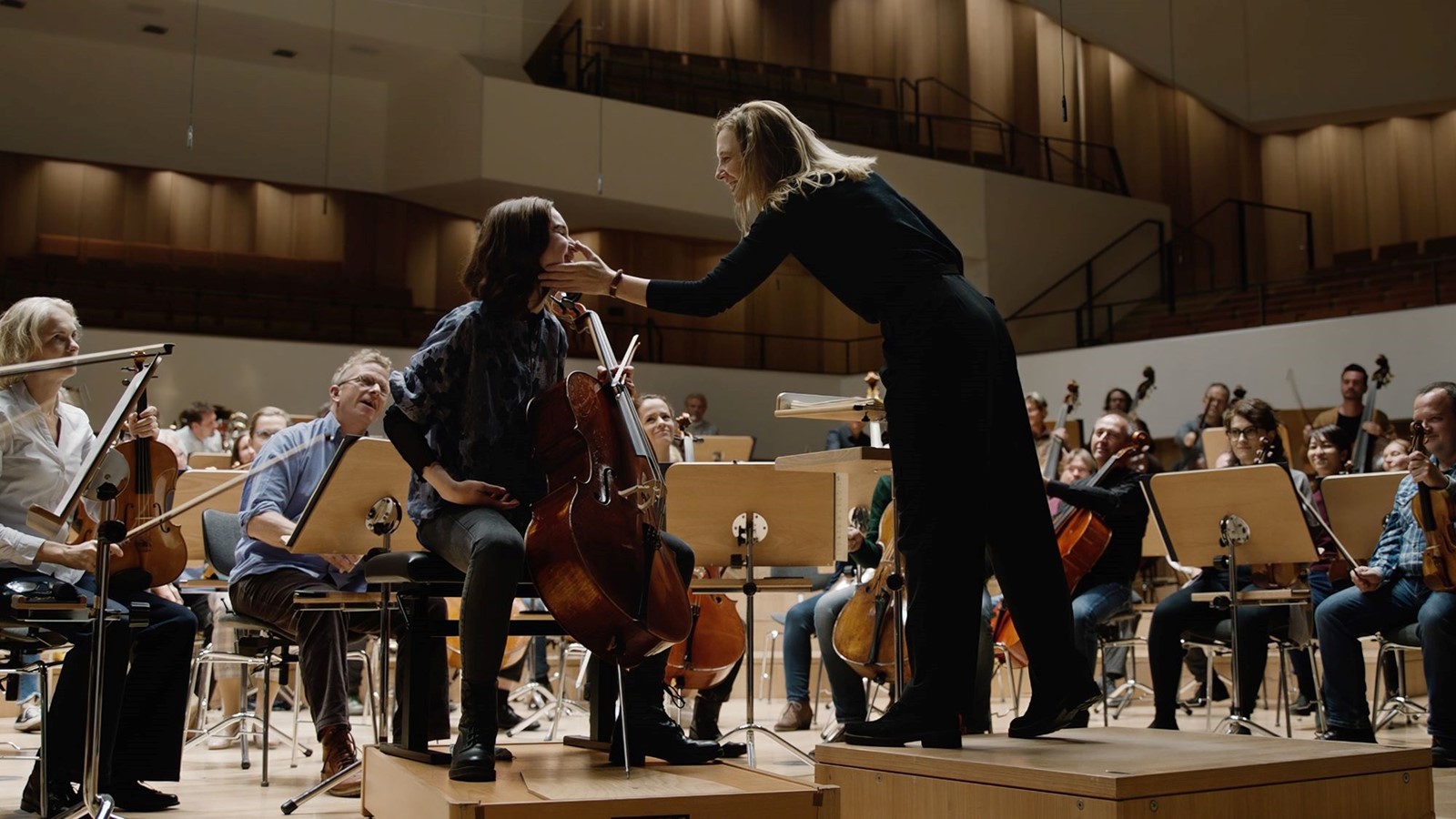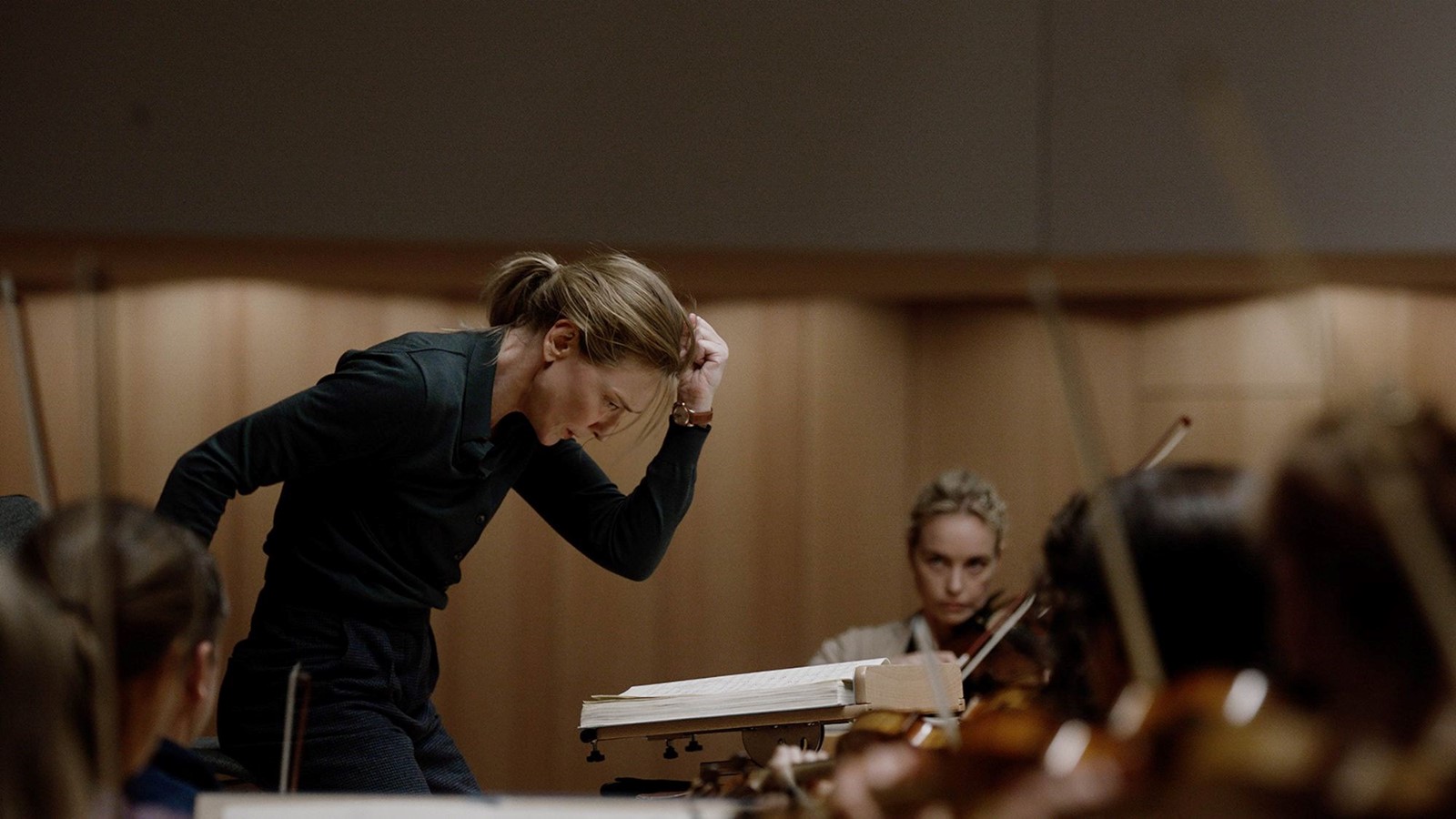We need to talk about Tàr, Todd Field’s classical music world opus which sticks a well-timed boot in the discourse around all things Culture Wars. The Oscar-tipped drama stars Cate Blanchett as Lydia Tàr, a trailblazing conductor and composer who falls publicly from grace after accusations of misconduct are levelled against her. It’s a #MeToo story, then, but one that discourages easy judgement and may leave some viewers unsure as to whose side they’re on. Take the scene where Tàr, as if pulling the wings from a fly, humiliates a student in front of their classmates for calling Bach problematic. She is awful here, but also mesmerising and kind of … right?
“It’s a poky scene for sure!” says Hildur Guðnadóttir, the Oscar-winning composer who wrote the soundtrack to the film, Fields’ first in 14 years. “But actually, I don’t agree with anything she is saying. Lydia is a fascinating character but she is hugely flawed; you’re never really sure whether you’re on her side. But I think that’s what’s so interesting. I worked on this film for a year and a half and I’m still very unsure whether I like her or not!”

It’s a measure of the Icelandic musician’s standing in the soundtrack world (her work includes imposing scores for the likes of Joker and Chernobyl) that her name was one of the first that came up when Fields was assembling the movie, which required her to write as one of the most celebrated composers in the world. Guðnadóttir’s response was to create mood pieces for the film’s different players which Fields, Blanchett and co could use to flesh out its various characters, work which is nowhere to be heard in the actual film. Likewise, much of her music written in character as Tàr appears only on the film’s soundtrack album, as a running theme throughout is Lydia’s attempts to find new direction for her work.
It’s a borderline-perverse approach that’s typical of the generosity with which Guðnadóttir works, in stark contrast to Tàr, an authoritarian figure who leverages her immense power to get what she wants from people. But, as it turns out, not everyone was supportive. “[People were like], ‘You’re supposed to be able to hear the score!’” says the composer, who joins us here to talk about the debate surrounding the film, separating the art from the artist, and the trouble with going your own way in a hidebound profession.
“I worked on this film for a year and a half and I’m still very unsure whether I like her [Lydia Tár] or not!” – Hildur Guðnadóttir
Alex Denney: How were you approached about this project, which is kind of unique as far as soundtrack gigs go?
Hildur Guðnadóttir: I came in very early in the process; I think I was the second person on the job after Cate [Blanchett]. I thought it was important we were on the same page about what the inner ‘tempo’ of the characters was, so I wrote a lot of music to accompany that. This is music that we don’t really hear in the film as such, but we can feel it through their demeanour. And then I wrote the music that [Lydia] is writing in the film.
AD: It sounds like you had to get quite method for this role – was this a new way of working for you?
HG: It’s an unusual way to write as a film composer because most of the time you’re not as much a part of the actual story. Also because nothing in the film is ever finished; you never hear a final piece or concert. But then we got to finish the piece that Lydia was writing [for the soundtrack album], so in a parallel world she actually gets to finish this record.

AD: Lydia exhibits some pretty questionable behaviour in the film, but I wonder, having worked so much ‘in character’ on the music, do you feel a kind of protectiveness towards her?
HG: I’m not protective of her at all, she works in a complete polar opposite way to the way I do; I like to work in a very non-hierarchical way. Lydia is a fascinating character but she is hugely flawed. You’re never really sure whether you’re on her side, but I think that’s what’s so interesting. I worked on this film for a year and a half and I’m still very unsure whether I like her or not!
AD: It’s like the scene where Lydia berates a student in class for saying that Bach’s misogyny makes him uncomfortable.
HG: Absolutely, that scene in particular asks about 37 questions, but again, I don’t agree with anything she says here.
AD: Oh really? She definitely crosses a line, but I was kind of cheering her on in that scene.
HG: She makes a lot of valid points, but what I find interesting is that she’s obviously frustrated with the position she has locked herself into, so she’s very happy to attack the younger generation who represent the places she is no longer in. [But] it’s a very poky scene for sure!

AD: ‘Poky’ is a good word.
HG: It’s this idea of: is it right to dismiss the art of someone who has shown questionable behaviour? These are questions we’ve had to ask a lot in the last decade, because so much has been unveiled about people even in the last year. [It’s like with] R Kelly – we decided to play along when he married a 15-year-old [Aaliyah]; we were fine with him peeing on the women he was keeping captive. Where is the line?
AD: Is there still a sniffiness in the classical music world towards film composing?
HG: It’s opening up a bit now, but I think this hierarchy persists to some degree. I’ve written a lot of music that’s been performed in a classical setting, and one of the biggest criticisms I’ve had is: ‘this is not how you’re supposed to do this!’ I’m used to hearing it – like, ‘women are not supposed to create music’, ‘women are not composers’ – that’s a big thing. I just chose to express myself this way, not as any act of conscious rebellion, but because I believe that music should be free. I’ve even had criticism of this one, for Tàr. [People are like] ‘film music is not supposed to be like this! You’re supposed to be able to hear the score!’ It’s OK, though, I’m used to it. I grew up doing things wrong!
“Is it right to dismiss the art of someone who has shown questionable behaviour? These are questions we’ve had to ask a lot in the last decade” – Hildur Guðnadóttir
AD: There have been many allegations of abusive behaviour made against composers since the #MeToo scandal broke, most, if not all of them, men. Why did Todd choose to build his film around a woman?
HG: I think he mostly just really wanted to work with Cate. [You could just as easily ask] why the classical world, because this story could have happened wherever. But what makes it helpful is that there’s a very obvious visual power structure to a classical setting – there’s the leader of the section, the conductor is clearly in power. And what [Todd] wanted to ask were questions like, ‘Why hasn’t a woman been the principal conductor of the Berlin Philharmonic?’ Because this is a fictional character – a woman has never been in this position.
AD: Early in the film we learn that Lydia is an ‘EGOT’ – one of a select few composers who have won an Emmy, a Grammy, an Oscar and a Tony award. You yourself only need a Tony to make it a clean sweep – can we expect a musical soon?
HG: [Laughs]. At least then I wouldn’t be stuck being an ‘EGOT’. I don’t know, I’m not a huge musical fan. Maybe I could do Chernobyl: The Musical? But if there’s an interesting opportunity I’m open to exploring it, just as long as it sparks my curiosity.
Tár is out in UK cinemas on January 13.
